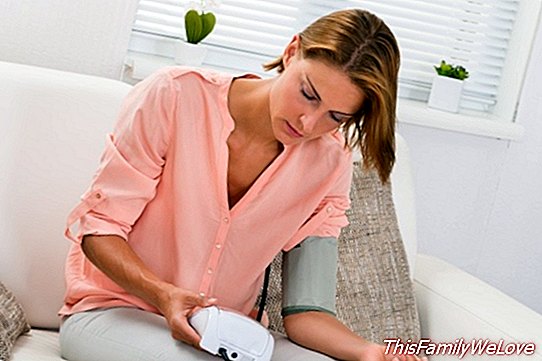Hypertension, obesity and asthma: the top 3 of self-care

WHO defines self-care as the set of health decisions made by the individual, and includes all non-organized health actions. However, 9 out of 10 Spaniards do not know it and do not know how to correctly identify the practices that it encompasses, according to the "Barometer on self-care of the Spanish population" prepared by PiC, a brand belonging to the Artsana Group with 40 years of experience in products for the self-care and health (tensiometers, thermometers, aerosols, dressings, syringes *), created with the most innovative technologies.
49.5% suffer from a disease that can be treated by self-care
The importance of raising awareness among Spaniards about the need for knowledge and the application of self-care practices becomes more evident considering that, according to the PIC barometer, 49.5% of respondents suffer from a treatable disease through self-care.
If these data are broken down, there are three diseases that mark the map of these pathologies in our country. Hypertension would be the most common with 12.8% of hypertensive patients, followed very closely by obesity (12.5%). The Top 3 would close asthma, a disease suffered by 11.6% of Spaniards.
Then there are other diseases such as diabetes, which affects 9.4% of respondents; hypercholesterolemia (8.2%) and arthrosis (7.2%). To a lesser extent, arthritis affects 4.3% of respondents, while osteoporosis affects 2.5%.
Hypertension, men's thing; arthrosis, women's thing
While it is true that, as a rule, these diseases do not understand the sexes, the results of the survey show a differentiation between men and women; In the case of hypertension, the gap opens up by 6.5 points and, while the percentage of female patients is 9.5%, that of men goes up to 16%.
In the case of diabetes, there are also significant differences: 12.1% of men versus 6.5% of women surveyed say they suffer from this disease. When we speak of osteoarthritis, 9.1% of women say they suffer from this pathology compared to 5.3% of men.
Asthma, the youngest disease
When the analysis is made by age, the study shows that 35% of those over 65 say they suffer from hypertension; 22% in the case of osteoarthritis and diabetes and 17% in the case of obesity.
These last two, however, do not understand the ages and, according to the data of the PIC study, they are suffered, although to a lesser extent, by the youngest. In the range of 18 to 24, the percentage of Spaniards who claim to have diabetes is 4.7%, which rises to 8.4% among young people from 25 to 34. In the case of obesity, 5.9 % of young people between 18 and 24 years old confirm that they suffer from it, while in the case of adults from 25 to 24 it shoots up to 9.4%.
However, according to the results, if there is a disease that reverses the upward trend by age, it is asthma. While in the rest of cases the percentage increases as the age increases, in the case of asthma the curve is descending. Thus, 18 to 24 confirm suffering 13%, while the peak occurs among young adults from 25 to 34 years, with 18.7%. From there, the percentage decreases until falling to 1.3% among Spaniards from 55 to 64 years.
They entrust the care of their health to their partner almost 9 times more than they
In addition to the situation of these treatable diseases with self-care by sex and age, the barometer prepared by PIC throws other very striking data on self-care in Spain. Following the differentiation by age, highlights the high percentage of young people between 18 to 24 years who entrust the care of their health to their parents. Specifically, 22, 3%, compared with 56.3% who claim to take charge of their health habits themselves. To a lesser extent, but equally relevant, 5.6% say that it is their grandparents who are responsible for it.
As for the difference by sex, up to 89.8% of women claim to be the ones who are responsible for their self-care, compared to 68.5% of men. However, especially highlighted is the gender gap when it comes to entrusting self-care to the couple, something claimed by 26.3% of men, compared to only 3.2% of women.
Internet, a recurring and young tool
In what seems to be more consensus is the weight of the Internet as a tool to search for information on self-care: 77.6% of respondents say they use the internet both to search for generic self-care information (37.1%) and to do it on specific topics (39.9%).
In this case, young people between 18 and 34 are those who say they use the Internet the most to learn about self-care (89.6%), while the percentage falls to 21.3% between 55 and 64 , already 12% among those over 65 years.
When finding those data related to self-care, the blogs of health professionals are the reference websites for 59.5% of the respondents, followed by the professional pages (54.4% and Wikipedia (32, two%).
The (pen) last word has the specialist
Of course, despite the importance given by respondents to the internet as an information tool, 54.8% acknowledge that, despite relying on what they may find, they prefer to consult with a specialist.
A particularly interesting fact considering that 54.2% of Spaniards recognize that, after their visit to the doctor and their subsequent diagnosis, they consult the information provided by the healthcare professional on the Internet. A figure that goes up to 62.3% in the case of young people between 25 to 34 years.




